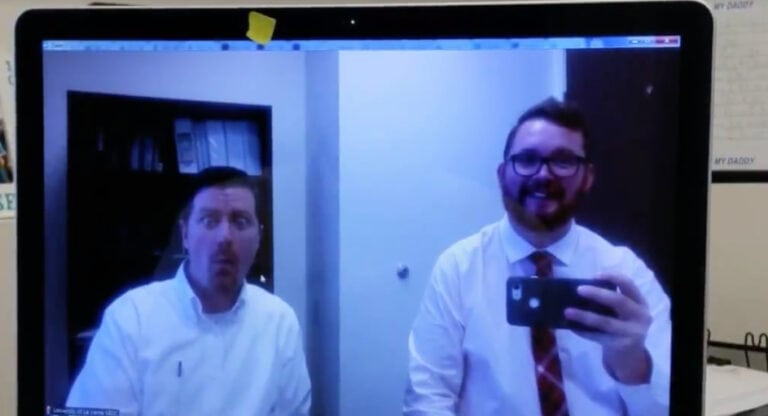On Writing What You Know

“Write what you know.” It’s one part simple, if oft-misunderstood truth, and part cliché. I often tell clients to write what they have experienced when it comes to their business. Business owners tend to get stuck quickly when they are asked: “what do you do?” The answer is usually more mechanical and functional in nature, but their answer doesn’t quite do them or their business justice. We’re going to expand on that a little more here.
I was at the Small Business Development Center (SBDC), sitting across from a new client. We introduced ourselves and I began our meeting by telling my client what I did for the SBDC and how the structure of the meeting was going to go. I asked them what the top three things were they wanted to cover in our initial consult. Right away content was placed into the arena as the primary focus. Great! I love talking about content.
On What You Do
I asked my client “What does your business do?” She replied, “We’re a thrift store. We sell affordable things to people.” There is nothing wrong with her answer, but it lacks depth; it lacks that certain “oomph!”
I probed a little more and asked a few more questions: Why did she start this business? What value does she believe her customers get from shopping her store? How does the community benefit from her store’s presence?
In short, every business has an origin story, and that story is re-told by the community. That is especially authentic for a brick and mortar establishment.
My client told me stories of how she would go to the thrift store with her sisters, Mother, and Grandmother as a kid. She remembered running wild, trying on clothes, playing with toys and being goaded on by her “Abuela.” That thrift-store, to my client, was a magical place where she and her family all found things they could enjoy. She didn’t realize it at the time, but that store and the community surrounding it would leave an indelible impression on her young mind.
She eventually stopped going to the thrift store. Instead, she hung out with friends and grew into young adulthood. She did her thing. When she had her first child, nostalgic feelings about her childhood would come to her at the most random times. She remembered that old thrift-store.
She would have conversations about those childhood memories with her sisters, and they came to a conclusion: They wanted to run their own thrift-store. Eventually, they would put together the money to buy the one in the neighborhood where they grew up.
The takeaway: There’s a story to why you do what you do. Maybe you run the family business. Perhaps you had a good idea that solved a big problem. Maybe you built your business out of a sense of purpose and duty. You just need to dig it out. The story is there; you just have to look for it!
Writing What You Know
Many of the most beloved writers in the world write about things that haven’t happened to them. That is, something doesn’t necessarily have to happen to you for you to know about it or write about it. Put another way; I don’t need to eat a whole bowl of soup to know that I don’t like it. Come again?
Writing what you know is important, but what you know doesn’t apply only to what has happened to you. If I put this into the context of business writing, I would simply say that as business owners we need to think not only about what we know how to do and what we do but we also need to think about what we know and what we do affects our customers and clients. How do we provide value to customers? How does what we do for them make them feel?
If you’re a locksmith, you provide a sense of security and confidence when you help someone replace a lock or get them back into the car they locked themselves out of. If you do heating and A/C, then you provide comfort. Graphic designers can delight in a lot of ways, creating joy with their imagination.
The takeaway: You’re not just a lawyer, you solve a problem for someone. You provide counsel and piece of mind. You’re not just a shop owner; you are a part of the community. You are a job creator. We’re a lot more than merely the sum of our business services. Go beyond and think about what you do and why you do it and think about how all that affects your customers and community.
Think Big
Thinking big isn’t a state-of-mind “Zen” moment I’m talking about. Business owners are often prone to thinking very narrowly about what they provide and less about the value of what they offer; the output and end-result of what they provide.
I know I am guilty of this. I forget about how the things I do affect the people I help. Just the right bit of advice empowers someone to take the next step in their business journey. It’s easy to forget all the nifty things you do, as a business owner.
That’s why it’s important to step out of your shoes and try to understand how your customers feel after you’ve provided them your services. How will they enjoy what you did? What would you want them to say? How would you want them to feel about what you did for them?
An exercise:
- Think about your business. Think about what you do and what you sell. Don’t think about what you sell, think about how people feel about what they buy from you. Does it make them happy? Does that purchase help them in some way or other? How? Write down at least five answers.
- Why do your customers buy from you and not the competition? Is it convenience? Is it price? Service? Write down at least five reasons you think people buy from you. If you’re not sure, just ask them from time to time.
- How do you feel about what you do? I’m not talking about balancing the books, stocking inventory, writing code or anything like that. What do you enjoy about what you do? What do you enjoy doing what you do for your customers?
- How do you want people to feel about doing business with you? If you run a local coffee shop, no doubt the Coffee Beans and Starbucks are the banes of your existence. If someone comes into your store and buys their cup-of-joe, how do you want them to feel about it? Besides being caffeinated, people make a choice with their wallet. Maybe that coffee is a little bit more at the “mom and pop” shop, but those dollars go to local business. Lots of people feel good about that (although not enough do it, in my opinion). But that’s one small way people can feel good about the purchases they make. Another is by knowing that the money is going to a business that does good work in the community, employs local students, the elderly, etc. Does that make sense? So write down a few ways your business can make people feel good about buying from you.
Final thoughts
As a business owner, you’re not only in the business of selling a widget; you also sell emotion, gratification, comfort and so much more! It’s time you started giving yourself a little more credit and don’t be afraid to write down what you know.
Photo Cred: Patrick Tomaso
Get Notified When We Publish New Content!
Join more than 2,500 people who get our marketing automation, business marketing, and WordPress news!







The difference between features and benefits is often a hard one for people to wrap their minds around, but it’s so important. Benefits change my life — features mean nothing on their own. Cars have hundreds of features, but only a handful will change my life, and it’s the life-changing bit that matters. I don’t buy a car because I want a backup camera — I buy a car that will keep my family and my investment safe (and the backup camera makes it so).
Sure, some people are feature focused, but I don’t buy a top-end computer because I want 32 GB of RAM — I buy a top-end computer so I can get the best experience out of my games. You’re not selling me a computer — you’re selling me the ability to have the experiences I seek.
Great article Alex.